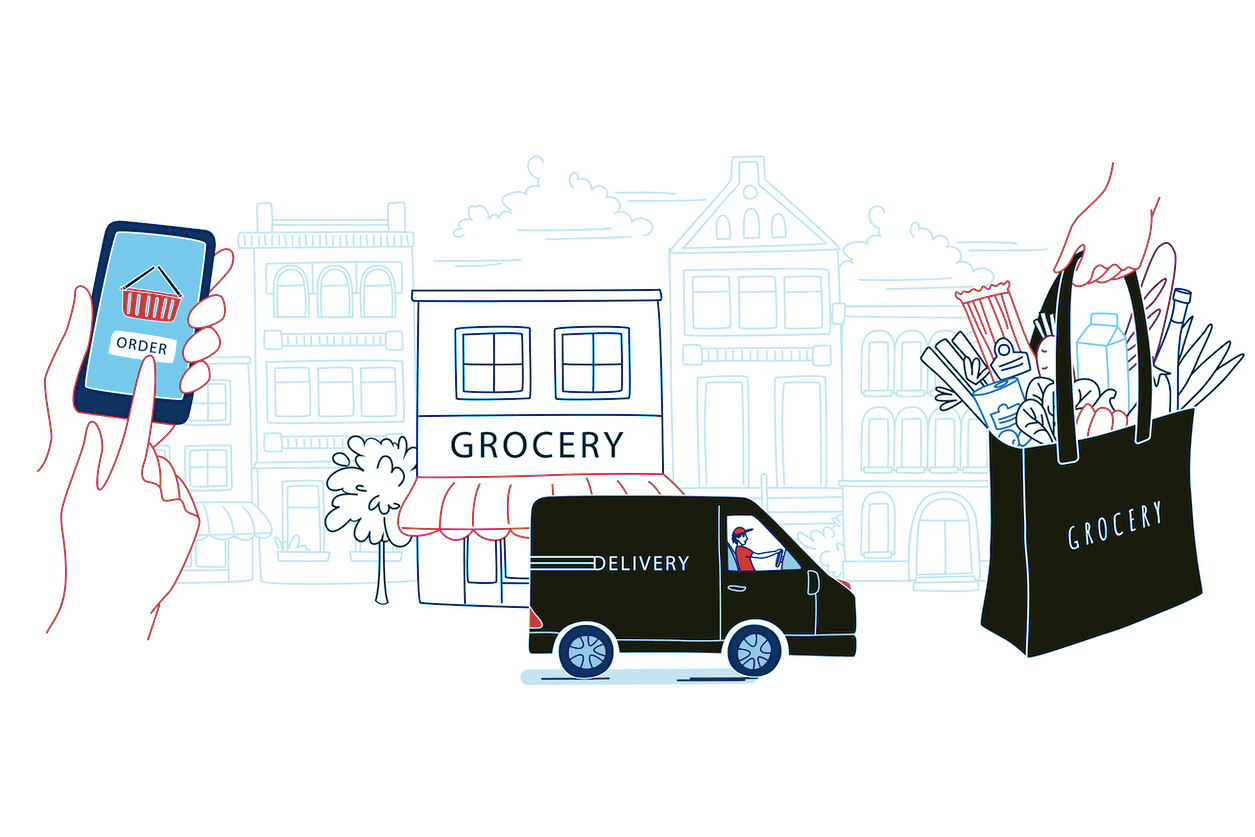
There are several reasons for utilizing online grocery delivery. It’s convenient, safeguards against impulse buys, and allows users to avoid crowds. Demand for these services has increased, marking a dramatic shift from its creation over 30 years ago.
However, with the pros of online grocery delivery, there are also cons. If you’re not careful, you can pay up to double for your goods. Users also have a list of common complaints that we’ll discuss below.
Together, let’s review the history of grocery delivery services and discuss the most beneficial ways to use them.
The pioneers of online grocery delivery
In the late 1990s, two competing companies, Webvan and HomeGrocer.com, tested the waters for grocery delivery. They built massive fulfillment centers in hopes of controlling the market. Both companies raised billions in capital. Yet, the idea was ahead of its time.
Even after an additional competitor, called Peapod, joined the race, there was no hiding that the ’90s was only the beginning of the internet. Less than 1% of Americans had online access in 1995. It created a bottleneck for these companies to obtain orders.
Current grocery delivery stats and predictions
Even though the grocery delivery concept had to endure growing pains, today’s providers are rolling in the successes. About 45% of consumers are shopping online for groceries more now than before the pandemic. According to Good Housekeeping, there are currently ten high-ranking providers, with Walmart leading the gambit. Additionally, US food and beverage retail e-commerce sales are expected to surpass $38 billion by 2023.
So, what are the pros?
Now that we explained the evolution of the industry, it’s time to review the advantages. What are the pros to having your groceries delivered? There are three main categories:
Time
Not having to spend time in the grocery store allows you to do other activities. Imagine squeezing in an hour on your home elliptical rather than shopping for eggs and bread.
Money
This feature depends on who you ask. According to a shopping article on Instacart’s blog, consumers can save money by comparing prices. Their app allows for easy comparison between stores and discounts under certain bulk-purchasing conditions. Furthermore, with the service, you must prepare your list ahead of time. Doing so cuts the chance for impulse purchases invading your cart.
You can stay home
Imagine a household with young children. Now, imagine toting them all along to the grocery store. Grocery delivery services allow people to stay home and still receive their food-related goods. People with mobility issues, or even those that want to avoid crowds, only have to wait a few hours for their items to arrive fresh at their doorstep.
Cons of online grocery delivery
Unfortunately, there are a lot of articles online about the disappointments of grocery delivery. Here are the main offenders:
Wrong items received
Picking groceries as a paid shopper is a manual process. Not every deliverer is successful at handling the requests. Often, shoppers work on multiple orders at the same time. It can lead to confusion and mix-ups.
Consumers pay higher prices
The good news is that providers are upfront with disclosures. The bad is that markups on groceries can be as high as 24%. It hits the consumers right in their wallets, neutralizing the benefits of grocery delivery because of costs.
Fees and tips add up quickly
Each order has service fees and shopper tips to consider. While subscribing saves money in the long run, it sometimes forces consumers to pay annual memberships upfront. If you only need a small delivery, it doesn’t make sense to pay triple the cost to cover the fees. Users should avoid the common mistake of shopping less frequently.
The future of online grocery delivery
We may see a boom in online grocery delivery services right now; however, analysts are skeptical about the industry’s future. They state some providers’ objectives are fundamentally opposed to those grocers it is supposed to service. As partnerships take place, it could leave the grocery stores themselves without profit.
Shortly, you may see many large retailers take delivery services into their own hands. They will switch away from third-party providers to retain revenue. It’s all stirring pretty suddenly. Those on the consumer side will have to keep watching the pot.




